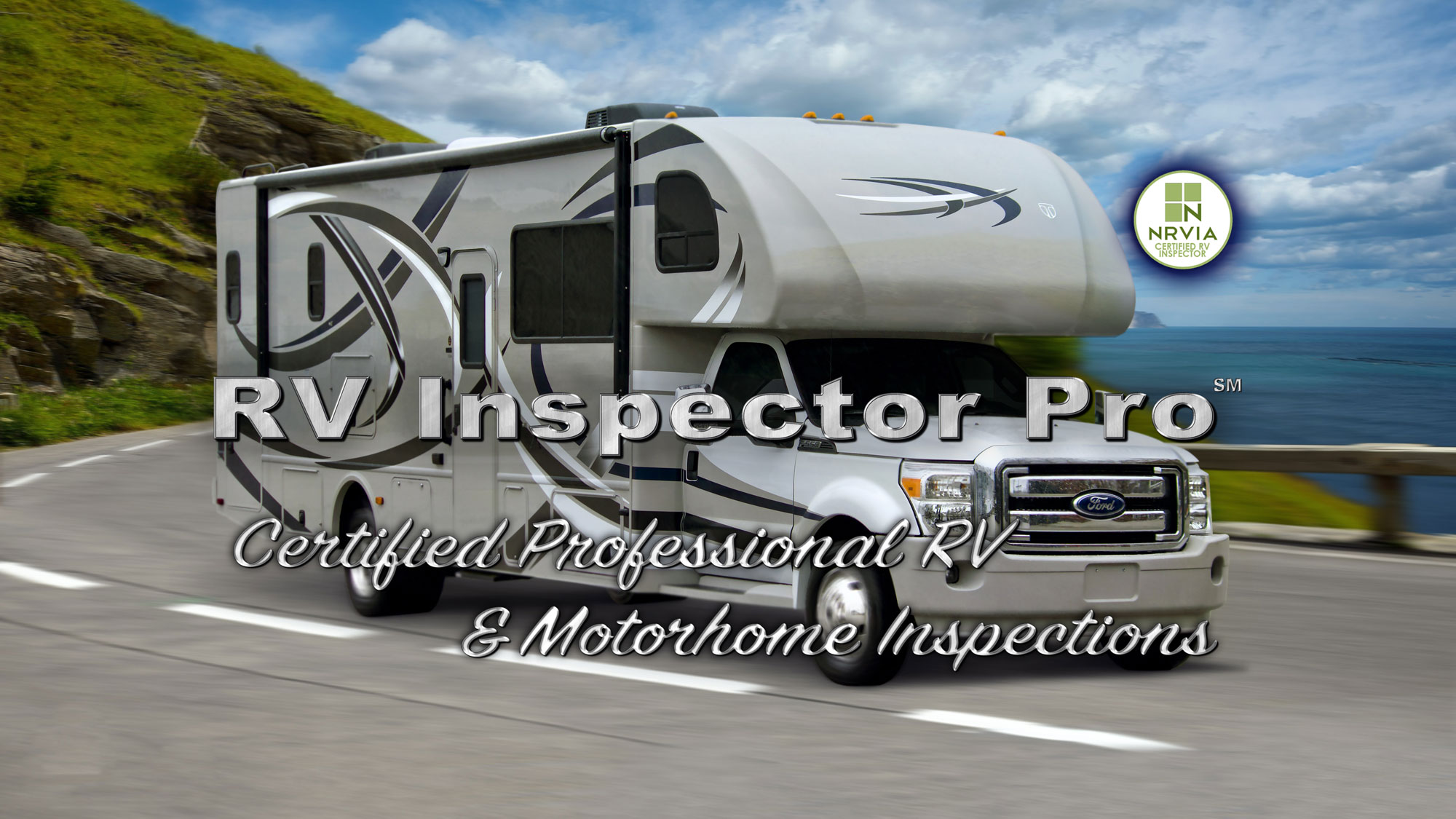If you are planning to buy an RV that was anywhere near the Gulf Coast, between Corpus Christi, Texas and Lake Charles, Louisiana, during Hurricane Harvey, you should have it inspected by a professional RV inspector.
Some areas had tremendous winds, while other areas had flooding. Even RVs that were not is areas that were subjected to hurricane force winds or flooding, should be inspected for water incursion, because because days of wind driven rain can cause leaks around slides, windows, roof joints/seals, and roof penetrations.
If an RV has been damaged, even a thorough cleaning is likely to leave tell-tale signals of that damage, if you know where to look. Even a coach that did not get water inside, may have had the brakes sit in water for hours. This would present a safety hazard.
If you don’t want to hire a professional RV inspector, then here are some of the things you should look for.
- Look under the coach, particularly on the tires and suspension, for a debris line, where floating debris may have been left, before the water went down. This could indicate possible brake damage. In such case, the brakes should be examined by a qualified RV brake specialist, to determine if such damage has occurred.
- Feel inside the bumpers or under the fenders, for debris. Hidden debris inside the bumpers or fenders could indicate that high water deposited that debris there and thus indicate possible brake damage. In such case, the brakes should be examined by a qualified RV brake specialist, to determine if such damage has occurred.
- Carefully examine the inside of all cabinets and closets, with a bright flashlight. You will be looking for water staining or swelling of the wood and any water staining of padding or carpet inside the cabinets. This may or may not be significant. But if you find such indications, further examination is advised.
- Look at the floor areas, near the front and rear of each slide. Examine these areas, both with the slide in and with the slide out. You will be looking for water staining or other indication of water incursion. This may or may not be significant. But if you find such indications, further examination is advised.
- Examine the storage bays directly below the front and rear of each slide. You will be looking for indications of water incursion, dripping from the slide edges. This may or may not be significant. But if you find such indications, further examination is advised.
- Look inside the engine and generator compartments, for signs of water debris that may not have been cleaned off, when the RV was washed. Keep in mind that this is an engine compartment. It gets dirty. So debris inside the engine or generator compartment may or may not be significant. But if you find such indications, further examination is advised.
The above list is, by no means, intended to be comprehensive. A professional RV inspector will use specialized tools, to make further determinations. I personally use a large (10 inch) inspection mirror, to see under the RV, a small (one inch) inspection mirror, to see behind interior obstructions, and a bore-scope, to see inside and around obstructions where even inspection mirrors won’t fit. A professional RV inspector will also examine the roof, for signs of potential leaks or damage to air conditioner(s), TV antennas, and other roof-mounted equipment.
Most of the RV dealers in the Houston area survived the storm with little or no damage. I’m sure that most dealers will check out their inventory, before offering their coaches for sale, after the storm. But they have hundreds of RVs to inspect and can’t spend all day on each RV. For that reason, it’s possible that they could inadvertently overlook some minor hidden damage. By contrast, a professional RV inspector will spend 6 to 8 hours examining just one coach – the one you plan to buy. Without a comprehensive inspection, you cannot be sure that the particular coach you plan to buy did not sustain some hidden damage.
Is it safe to buy a Gulf Coast RV after Hurricane Harvey?
Absolutely!
Should you have it professionally inspected?
Absolutely!
Every RV, used or new and regardless of where it is purchased, should be inspected. Hurricane Harvey is just an additional reason why you should have your prospective RV purchase inspected. Certainly, an RV inspection cannot guarantee that an RV is completely free of defects or damage. But a professional RV inspector knows what to look for and has the requisite tools to make determinations beyond the obvious. What a professional RV inspection offers, is a significant comfort level with your RV purchase, well beyond what you might otherwise achieve on your own.
To find an NRVIA certified inspector in your area, follow this link.
John Gaver, of RV Inspector Pro, is a National RV Inspectors Association (NRVIA) Certified Level 2 RV Inspector.
Copyright 2017 John Gaver
The copyright holder grants third parties the right to re-publish this article only in whole and un-modified, including links and this notice.
